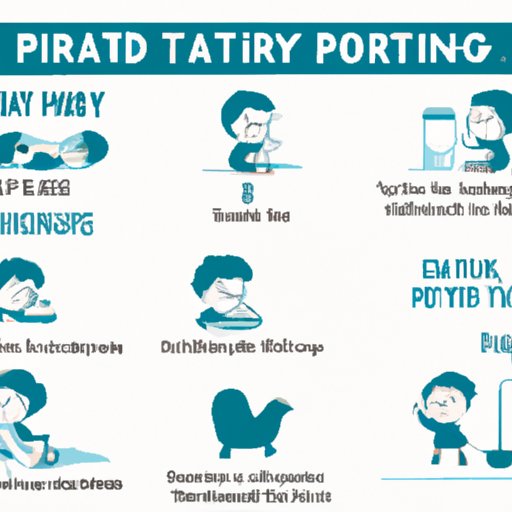I. Introduction
Potty training is one of the biggest milestones of parenting. Whether you are a first-time parent or have multiple children, every child is unique and potty training can be a challenge. This article will examine the topic of potty training a boy and provide helpful tips, tricks, and information to make the process as smooth as possible.
II. The Basics of Potty Training a Boy
Before exploring the specifics of potty training a boy, it is important to understand the terminology associated with this process. Potty training involves teaching a child to use the toilet for peeing and pooping. There are different approaches to this, including using a potty or a child-sized toilet seat. It is important to keep in mind that patience and persistence are key elements of potty training.
III. Timing for Potty Training and Recognizing Readiness
One of the most common questions parents have is “when is the best time to potty train?” Every child is different, but most children are ready to begin potty training between the ages of 18-24 months. Keep in mind that readiness includes a combination of physical and emotional readiness. Parents can recognize when their child is ready for potty training when they show signs such as following simple instructions, awareness of their own bodily functions, and a desire to wear big kid underwear.
IV. Equipment Needed for Potty Training a Boy
There are several pieces of equipment that are helpful when potty training a boy. One of the most important is a potty chair or a toilet training seat. Make sure you have one that is sturdy and comfortable for your child. Other essential items include underwear and pants that are easy to pull up and down, wipes, and hand sanitizer. You may also find it helpful to have a few potty training books or videos to help your child understand the process.
V. Creative Tips for Potty Training a Boy
Potty training doesn’t have to be boring! Parents can use creative and fun tactics to help their child learn this new skill. Some suggestions include having your child aim at a target in the toilet to practice good aim, using a reward system such as stickers or a special treat for successful bathroom trips, and incorporating books or games about using the potty into your child’s routine. Making potty training fun and positive can make all the difference during this stage of development.
VI. Troubleshooting Common Problems
It is common for children to experience accidents or for the potty training process to take longer than expected. As a parent, it’s important to remember that setbacks are a normal part of the process. Some tips for troubleshooting common potty training problems include staying patient and supportive with your child, keeping a travel potty in the car for long trips or errands, and gently reminding your child to use the potty instead of punishing them for accidents.
VII. Consistency is Key
Consistency is one of the most important elements of potty training. It’s important to set a routine that works for you and your child, and stick with it. This routine should include regular trips to the bathroom, praise for successful bathroom trips, and reminders for your child to use the potty throughout the day. Consistency helps your child learn to associate the routine with using the bathroom successfully.
VIII. Encouragement and Support
Potty training can be a challenging time for both parents and children. It is important to offer plenty of encouragement and support along the way. Remember to praise your child for their successes, offer reassurance when they have setbacks, and be understanding of the fact that everyone learns at their own pace.
IX. Conclusion
Potty training a boy can be a challenge, but it doesn’t have to be a stressful experience. With patience, persistence, and a few creative ideas, you can help your child learn this important skill and move towards greater independence. Remember to be supportive throughout the process and offer plenty of praise for your child’s successes. For further reading or guidance, there are many helpful resources available including books, online forums, and parenting classes.
